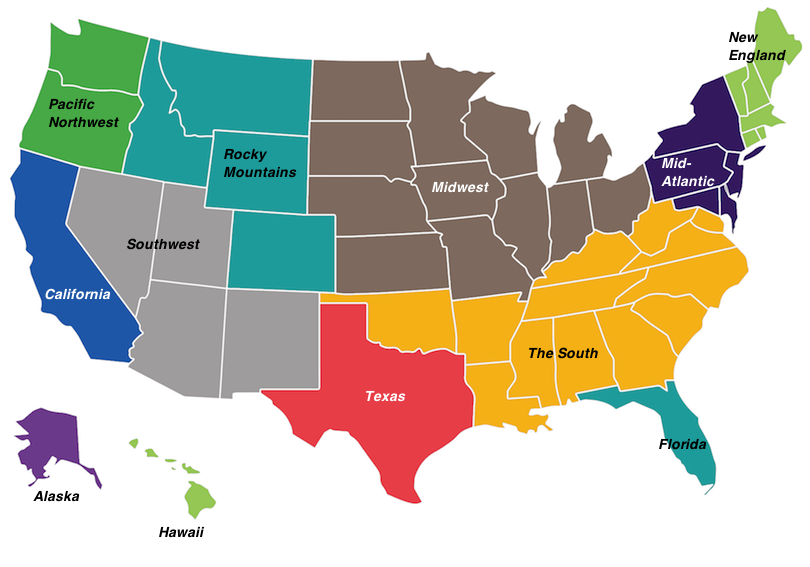When choosing a franchise, you have to weigh a number of factors. Do you want to work from a physical location or from home? Be an owner-operator or executive owner? Buy into the restaurant industry or something else? You also have to decide: regional franchise brand or national?
Last week, I shared the pros and cons of working with a national franchisor. Now let’s look at the same breakdown for a regional franchise brand.
The Advantages of Working with a Regional Franchise Brand
Regional franchise brands often appeal to franchisees because they usually cost less to purchase and operate. Franchisor fees–for initial purchase, marketing, and royalties–tend to be lower for regional than for national brands. And regional franchisors are usually more willing to sell single-unit franchises, or at least just a few at a time.
Because of their smaller size, regional brands may also provide more personalized service to their franchisees. You’re more likely to know the company leadership and to get immediate help with any issues. Also, since owner networks are smaller (but still very useful), you can forge tighter connections with your fellow franchisees–a big benefit for anyone looking for a mentor. Finally, when you work with a regional franchise brand, you can have influence within the network without owning dozens of locations.
A regional franchisor is also more likely to be flexible about details. While they’ll still have a proven business system to boost your odds of success, they may be more open to suggestions for improvement or less strict about suppliers and contractors. So if you already have a great relationship with a local marketing agency or building contractor, you can still leverage that for your new business.
The Disadvantages of Working with a Regional Franchise Brand
Compared to national franchisors, regional brands tend to have fewer resources. They often have less money in the bank and a smaller team at headquarters. This doesn’t mean they’re less stable: running a smaller organization simply requires fewer resources. But it does mean they may not offer some of the perks of a better-resourced franchisor, such as inside sales support or comprehensive on-site training.
Regional brands also have fewer locations than national brands. This generally translates to less leverage with contractors or suppliers, so you may not get the kind of discounts a national franchisor can command. A smaller brand will also have a smaller owner network, and it may not be as diverse as those for national brands. Other owners may be too far away for meaningful networking, or you may struggle to find someone you can relate to. And fewer locations mean fewer opportunities for the franchisor to work out the kinks in their business system. Watch carefully for any red flags that you’re signing on to an unproven business model.
Finally, a regional franchise brand–by definition–stays in a smaller area. Within that area, name recognition may be very good, especially for long-standing franchisors. But you may have to fight hard for business if your brand is new, and you won’t be able to expand outside the franchisor’s limited area.
Bottom line: if you love the idea of franchising but don’t have quite as much to invest, or you’d prefer a more personal relationship with your franchisor, a regional franchise brand may be the right option for you. Still not sure what’s best for you? I’m here to help! Book a 15-minute call on my calendar to start your free personal assessment.

No responses yet